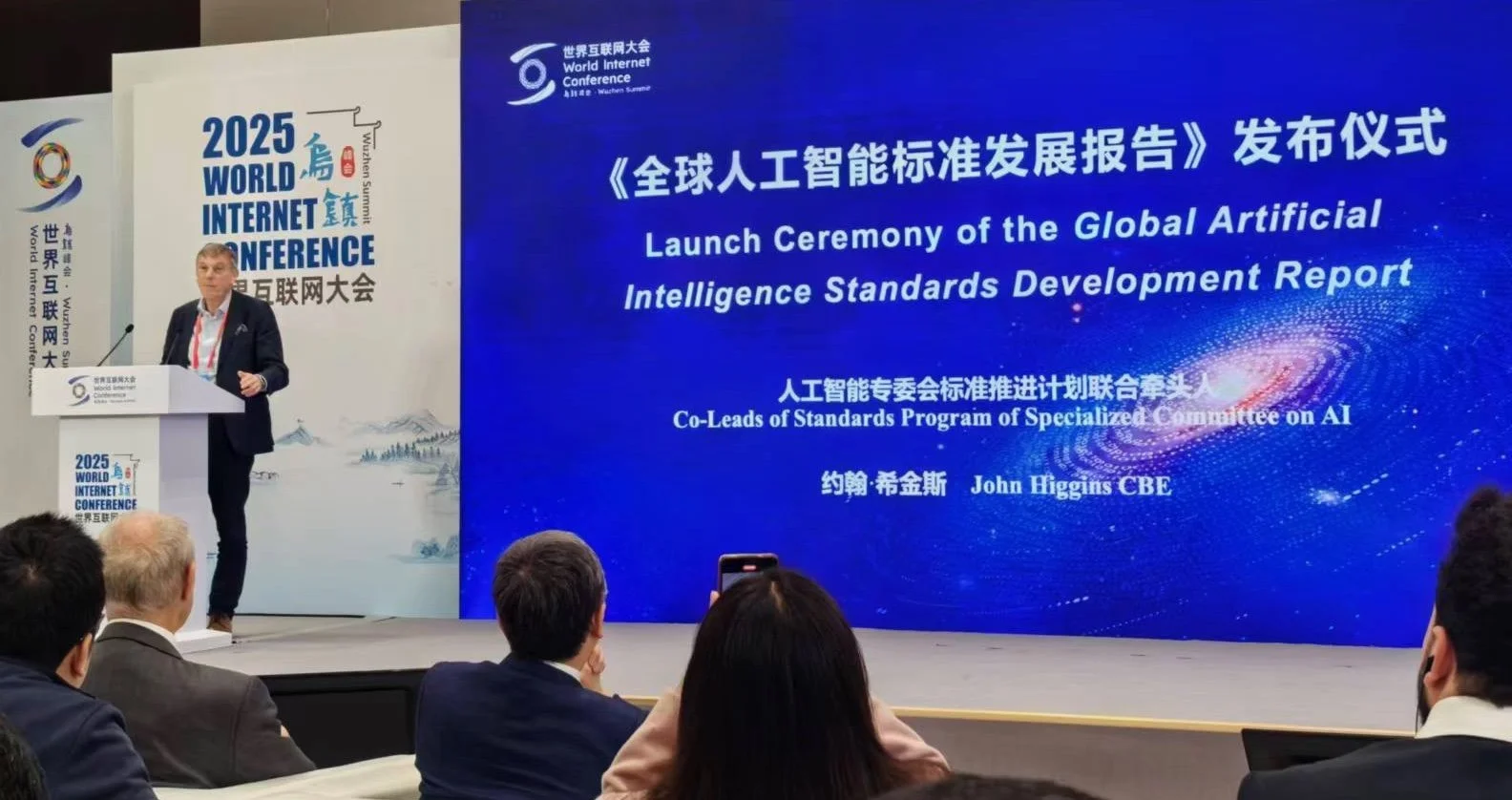Our Vision: A global consensus on AI governance
IAGA works to:
Enhance harmonisation and reduce fragmentation in AI governance across different regions and geographies
Increase coherence between horizontal and sector-based approaches to AI governance
Encourage the development of AI standards and certification that support our vision of global consensus
Promote robust usable industry good practice in global AI governance
Facilitate global market access for AI products and services
We bring together representatives from across the AI ecosystem to advance this vision. We convene events and working groups with leading industry experts, AI assurance providers, regulators, policy makers, standards and certification bodies, and academic experts.
We share key insights into the rapidly evolving AI governance ecosystem, and offer unique opportunities for members to shape industry’s response to these developments.
Our growing membership currently numbers over 350 professionals working in AI technology, international standards development, public policy, and universities. IAGA was previously the AI Assurance Club, and builds on the work of the Club since it was established in June 2022.
What is AI Governance?
Any business that develops or uses AI will encounter both compliance related risks and non-legal risks, such as repetitional harm. To identify and effectively manage these risks and opportunities, many organisations are already developing robust internal AI governance structures. This means organisations need to put in place the right internal processes and guidelines to ensure effective decision making about responsible AI development, deployment and use. There is a rapidly growing demand for AI governance professionals with the expertise and skills needed to support organisations in meeting their strategic priorities.
The production and distribution of AI systems is complex. AI systems are generally developed through the collaboration of many actors within a value chain rather than ‘in-house’ by a single entity. In January 2024 we proposed a multi-actor governance framework (MAGF) to support assurance information flow between actors in the AI value chain. We outline this approach in our MAGF white paper. We are delighted and proud that our efforts relating to transparency through the value chain, and the need for frameworks to support information sharing, have raised the importance of this issue.






